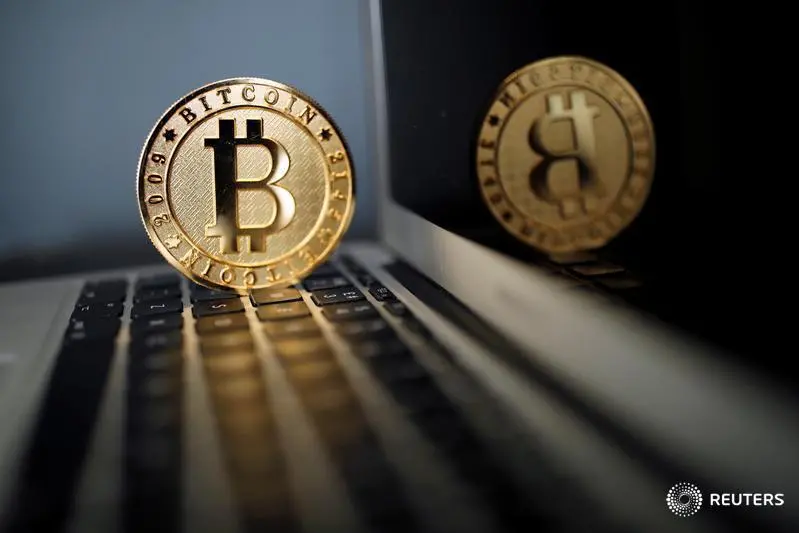PHOTO
The U.S. Department of Energy (DOE) on Friday agreed to temporarily suspend its emergency survey of energy use by cryptocurrency miners following a lawsuit by bitcoin miner Riot Platforms and an industry group.
The DOE's statistical arm, the U.S. Energy Information Administration (EIA), will halt its mandatory survey for a month and sequester the data it had already received after it began collecting information from bitcoin miners on Feb. 5, the agency said in a Friday notice to a Texas federal court.
Riot Platforms and the Texas Blockchain Council had sued the Biden administration in that court on Thursday seeking to block the survey, which they said could harm businesses by forcing them to divulge confidential and sensitive information.
The EIA had said the information is needed to assess concerns that cryptocurrency miners' increased use of electricity, spurred by high bitcoin prices, could pose an imminent threat to energy grid reliability.
The plaintiffs claimed in their lawsuit that bitcoin mines, which use large amounts of electricity for computing and cooling data processing centers, can actually improve reliability since they can be quickly shut down to offset spikes in energy demand during severe weather that can cause blackouts.
They said the emergency demand from EIA was based on “speculation and conjecture” that bitcoin mining is likely to present a threat to the power grid, and failed to follow proper public notice and comment requirements under federal paperwork reduction and administrative laws. They asked the court for a permanent injunction prohibiting EIA from requesting the data without first complying with the law.
“This is a case about sloppy government process, contrived and self-inflicted urgency and invasive government data collection,” the plaintiffs said.
Texas is a hub for bitcoin mining activity, according to the lawsuit. Texas Bitcoin Council has 25 members with mines in the state including Riot Platforms.
A spokesperson for the plaintiffs said they are encouraged by the government's Friday announcement, but that it falls short of the relief they are seeking.
Digital cryptocurrency miners have come under scrutiny in recent years due to their potential impact on power grids, greenhouse gas emissions and energy-intensive operations, which have been estimated to use more electricity than the entire country of Norway.
The EIA compiles data on U.S. energy output and use across the economy, and said in January that its survey would focus on where mining growth is concentrated, the electricity sources they use and how power demand for cryptocurrency mining is changing in order to develop rigorous estimates of the industry's power usage for policymakers and others.
(Reporting by Clark Mindock and Laila Kearny in New York; Editing by Alexia Garamfalvi, Daniel Wallis and Sonali Paul)





















